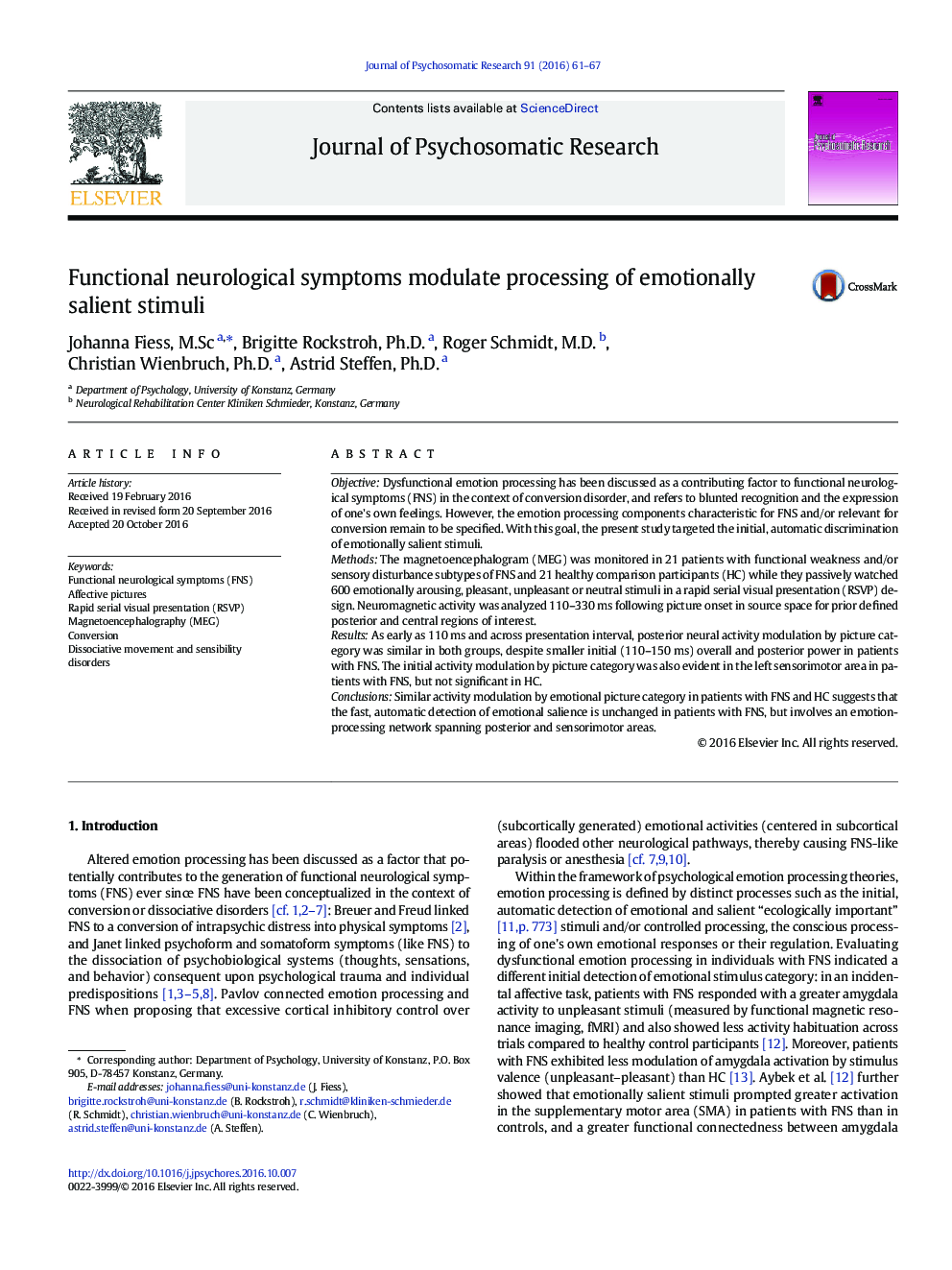| Article ID | Journal | Published Year | Pages | File Type |
|---|---|---|---|---|
| 5046104 | Journal of Psychosomatic Research | 2016 | 7 Pages |
â¢Emotionally salient pictures modulate initial (110-330 ms) posterior neuromagnetic responses.â¢This correlate of salience detection is similar in patients with FNS and controls.â¢In patients with FNS, sensorimotor areas are involved in this automatic salience processing.
ObjectiveDysfunctional emotion processing has been discussed as a contributing factor to functional neurological symptoms (FNS) in the context of conversion disorder, and refers to blunted recognition and the expression of one's own feelings. However, the emotion processing components characteristic for FNS and/or relevant for conversion remain to be specified. With this goal, the present study targeted the initial, automatic discrimination of emotionally salient stimuli.MethodsThe magnetoencephalogram (MEG) was monitored in 21 patients with functional weakness and/or sensory disturbance subtypes of FNS and 21 healthy comparison participants (HC) while they passively watched 600 emotionally arousing, pleasant, unpleasant or neutral stimuli in a rapid serial visual presentation (RSVP) design. Neuromagnetic activity was analyzed 110-330Â ms following picture onset in source space for prior defined posterior and central regions of interest.ResultsAs early as 110Â ms and across presentation interval, posterior neural activity modulation by picture category was similar in both groups, despite smaller initial (110-150Â ms) overall and posterior power in patients with FNS. The initial activity modulation by picture category was also evident in the left sensorimotor area in patients with FNS, but not significant in HC.ConclusionsSimilar activity modulation by emotional picture category in patients with FNS and HC suggests that the fast, automatic detection of emotional salience is unchanged in patients with FNS, but involves an emotion-processing network spanning posterior and sensorimotor areas.
